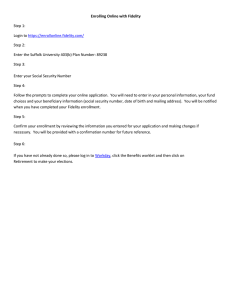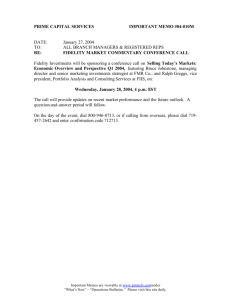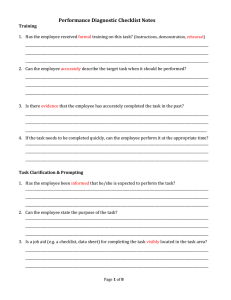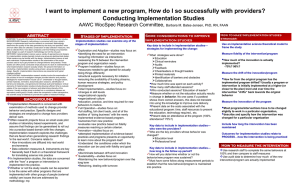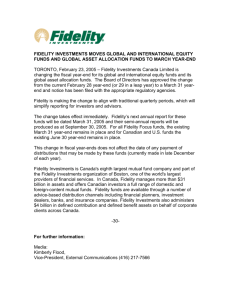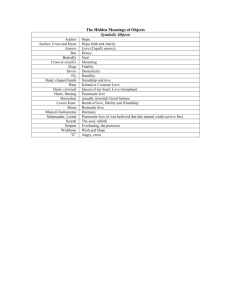Ethics at a Glance
advertisement
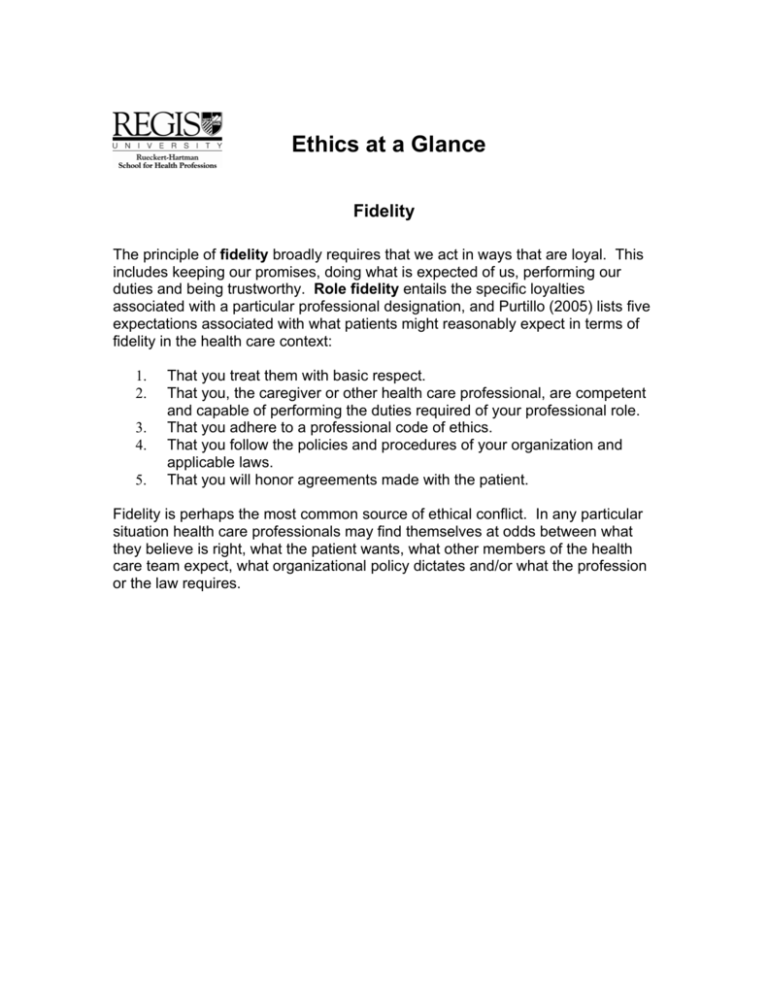
Ethics at a Glance Fidelity The principle of fidelity broadly requires that we act in ways that are loyal. This includes keeping our promises, doing what is expected of us, performing our duties and being trustworthy. Role fidelity entails the specific loyalties associated with a particular professional designation, and Purtillo (2005) lists five expectations associated with what patients might reasonably expect in terms of fidelity in the health care context: 1. 2. 3. 4. 5. That you treat them with basic respect. That you, the caregiver or other health care professional, are competent and capable of performing the duties required of your professional role. That you adhere to a professional code of ethics. That you follow the policies and procedures of your organization and applicable laws. That you will honor agreements made with the patient. Fidelity is perhaps the most common source of ethical conflict. In any particular situation health care professionals may find themselves at odds between what they believe is right, what the patient wants, what other members of the health care team expect, what organizational policy dictates and/or what the profession or the law requires.
